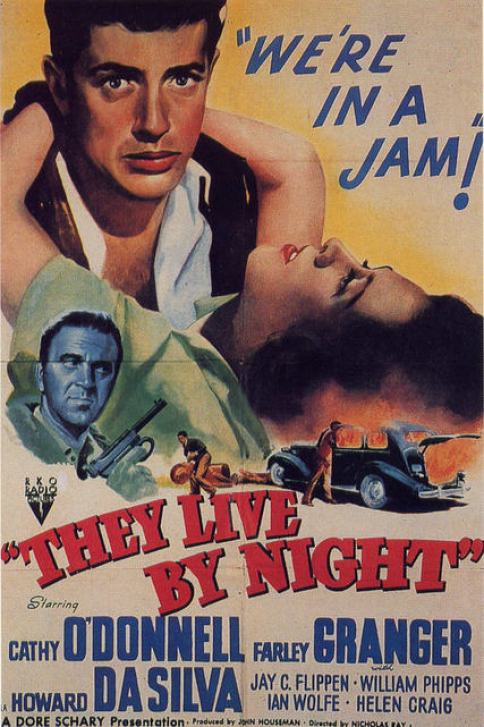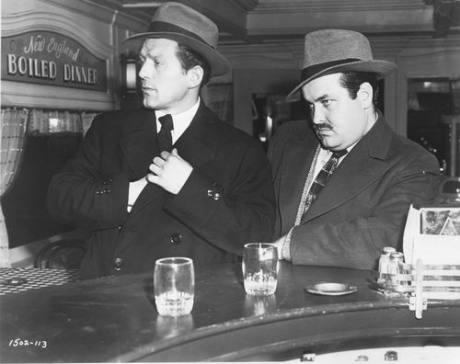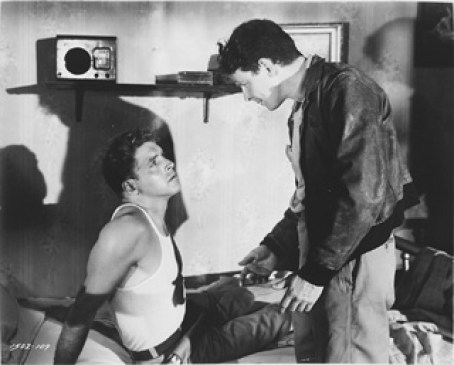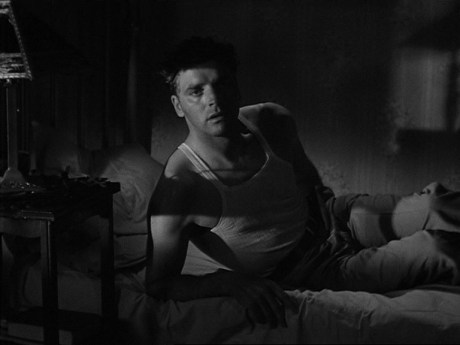The Naked Kiss (1965) Shock and Shame, the story of a Night Girl.
Directed by the maverick auteur Samuel Fuller, with a screenplay by Fuller and black, gray, and white shades in the striking cinematography by Stanley Cortez
-(The Magnificent Ambersons 1942, Since you Went Away 1944, The Night of the Hunter 1955, Shock Corridor 1961), Cortez creates a sense of space that is almost surreal and disconnected from the outside world. The Naked Kiss stars Constance Towers as Kelly, Anthony Eisley as Griff, Michael Dante as Grant, Marie Devereux as Buff, Patsy Kelly as Mac, and one of my favorite unsung actresses Virginia Grey (The Women 1939, All The Heaven Allows 1955, Crime of Passion 1956, Backstreet 1961) as Candy.
Let me say that this is one of my favorite films. I think that it’s such a bold concoction of visual style, specific alienation that we as spectators experience along with Kelly our female Protagonist. The undercurrent of sexual pathology of a perverse nature and raw energy that fuels some crude reactionary moments on film. Normally I wouldn’t write about the ending of a film so as not to ruin it for the viewer, yet Constance Tower’s remarkable performance and Fuller’s raw cinematic veritae must be experienced, the story will not lose anything by my relating it here. I actually consider this part of my Women in Peril series, but more aptly put, it’s a womanhood in peril film.
Samuel Fuller’s B post-noir films are not like anyone else’s. Fuller’s work is often confrontational and visceral considered the kinkiest of all the B post-noir auteurs. Naked Kiss is his most potent work alongside his noir masterpiece Pickup on South Street (1953) starring Richard Widmark and Thelma Ritter as Moe Williams.
Alain Silver and James Ursini’s Film Noir Reader 2 “Fuller’s Naked Kiss “boldly offers a different kind of descriptive pause. Fuller takes on Patriarchy and directly assaults the spectator with a bizarre opening”













In their book they inform us that Fuller actually attached a camera to actor Monte Mansfield who plays Kelly’s pimp Farlunde, the guy she pummels in his swanky apartment right from the tip of the film. He has shaved off her hair and in retaliation she takes her primal vengeance out on his, beating him with her purse and high heels. Kelly only takes the money owed to her. The scene already prepares us, and what is created is an off-kilter and disorienting mood. The opening of The Naked Kiss is perhaps for me one of the most audacious beginnings to any cinematic work. It sort of punches you right in the face along with Farlunde.
The greater theme of the film is its narrative of women’s role within society. In a way not unlike Elia Kazan, Fuller has created a sociological framework, to lay out questions of what womanhood, as well as motherhood, means discursively. While at the end of the film, Kelly is relegitimized as being a savior and not a whore, she is still not allowed to live amongst the clean town’s people. She is still an outsider. Silver and Ursini also correctly bring out in their noir reader the fact that the context of the film is a “discursive-based attack on men and how they define women as well as the limits they place on them”. Also notable is the displaced female rage that only became better articulated later on with feminists during the 60s and 70s.
It reminds me while watching television’s soap opera junk food Peyton Place with its pillory that sits prominently in the middle of the town square as a reminder of New England Puritanical morals and the lurking hypocrisy in the shadows of quiet provincial values, that warn girls to beware of giving away their virtue. Betty Anderson (Barbara Parkins) learns this when she is condemned as the archetypal whore, the tainted girl who gave up her purity to a boy during a summer fling and then was thrown away like autumn trash. The pillory stands in the middle of the town, 200 years prior a woman like Betty had her head shaved bald, was locked in the pillory to be mocked, and then was driven out by the good town folk of Peyton Place. Much like Kelly who we first meet at the shocking opening of the film (one reason The Naked Kiss is such a uniquely memorable excursion for me) is completely bald and striking back at the man who took her hair, her power away.
The Naked Kiss written, directed, and produced by Sam Fuller, opens wide like a steel trap, with Constance Towers as Kelly viciously beats up a pimp Farlunde in his swanky apartment, smashing away at him with her handbag. Hitting his face and neck, it’s like watching a brutal choreographed dance. Fuller creates this wavering movement to give us a sense of the dizzying brutality. Farlunde begs “I’m drunk Kelly please,” “Enough Kelly please.” The savage jazz riffs underscore the bashing. Her wig comes flying off, and now we see a bald Kelly still attacking the man relentlessly. The jazz is coherent with the hyperactive saxophone.
Stripped of her hair looking like a mannequin (perhaps to show us Kelly as an “object”) she beats him till he staggers to the floor, spraying seltzer water in his face. He’s wasted by the beating, she rifles through his pockets and grabs some cash from his wallet. “Eight hundred dollars… you parasite… I’m taking only what’s coming to me.” She starts counting out bills, throwing them down upon his chest, “Fifty, sixty, seventy-five… I’m not rolling you, you drunken leech, I’m only taking the seventy-five dollars that’s coming to me.”
She crumples up her share, shoves it into her bra, and kicks him while he’s lying there. She stares at us like we’re her mirror. Gratified she puts her wig back on and the title rolls, The Naked Kiss. Sam Fuller’s story of alienation, gender subjugation, and the question of immorality and deviant sexual pathology, opens up in a big way.
The Paul Dunlop score becomes more dreamy, with melodramatic strings and Kelly brushing her wig. getting it right. The credits roll and Kelly are applying her eye pencil transforming herself back into a woman and not a bloodthirsty she-devil. Now the blush is applied, the music fades back into the jazz number and we see Farlunde knocked out, lying on the floor. The saxophone is hurling trills at us, Kelly grabs a photograph down from a collection of beauties and she starts tearing it up to pieces, throwing them on the ground, the Farlunde stirs, coughs a bit, and starts to get up, Kelly slams the door.
As he starts picking up the debris Kelly has left in her wake he puts crumpled-up bills on top of a calendar and we see the date July 4, 1961. A quick cut, flash forward to a banner in the street touting August 12, 1963, and the melodramatic music is serenading us again. The camera pulls out for a wider angle, we can see the entire banner now, it reads 2 years later. August 12, 1963 Fashion Show for Handicapped Children Grantville Orthopedic Medical Center
The top of a bus moving through the street, a parked car, a mostly empty street, with a few people crossing it, and mulling about. This is the suggestion of a quiet, quaint American town.

Then a car horn toots, 3 men standing outside a Bus Depot, Griff (Anthony Eisley) says “Ten bucks, that right Mike?” Mike says “Why spend your own money on that punk?” Griff turns to the young man and says while stuffing it in his pocket “Here’s your ticket” smiles at him and shoves some money into his pocket as well. All the time the young man is looking down as if ashamed. He says “Thanks a lot Griff… I’ll pay you back.” Griff looks at him sternly, “I’m giving you a break, cause your brother was in my outfit… I don’t want to see you in this town again.” The young man looks down again.

Then a Greyhound bus pulls over to the curb. We see the marquee of the movie theater is playing Shock Corridor, a nod to Fuller’s other psychologically wrenching film about a newspaper reporter going undercover in a lunatic asylum, only to become one of the patients.





































































































































